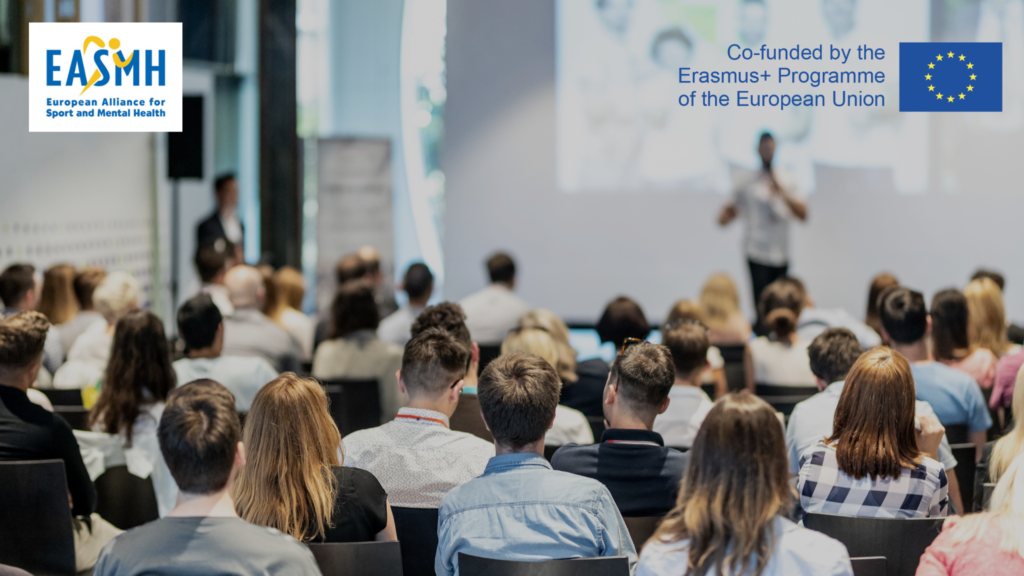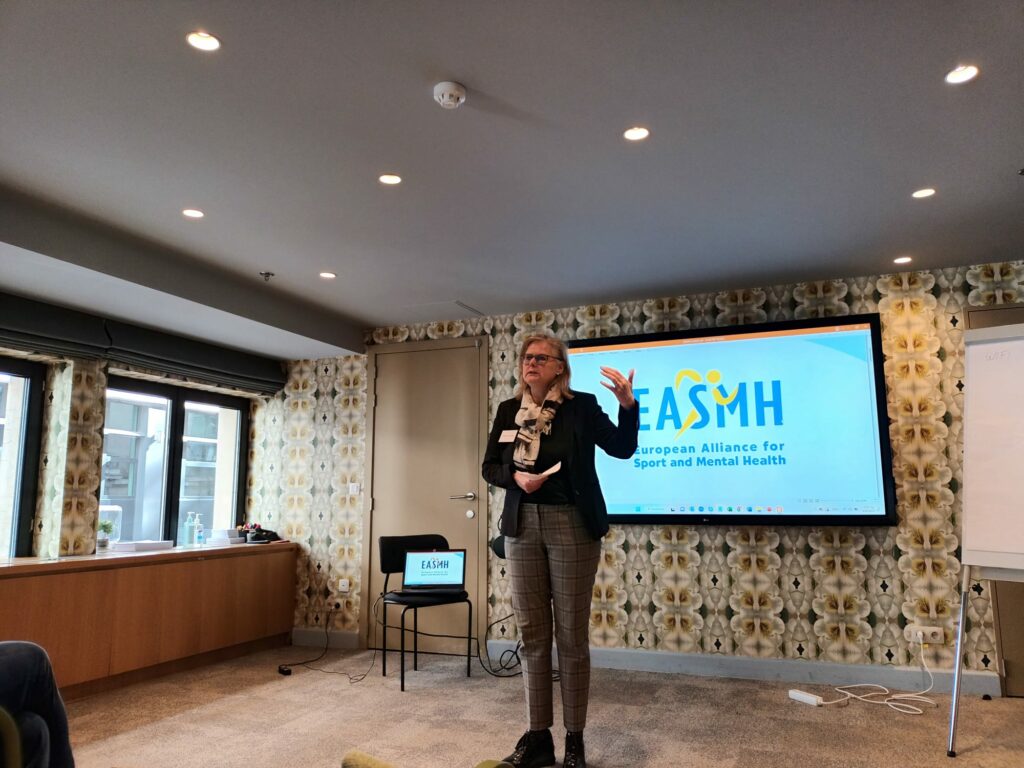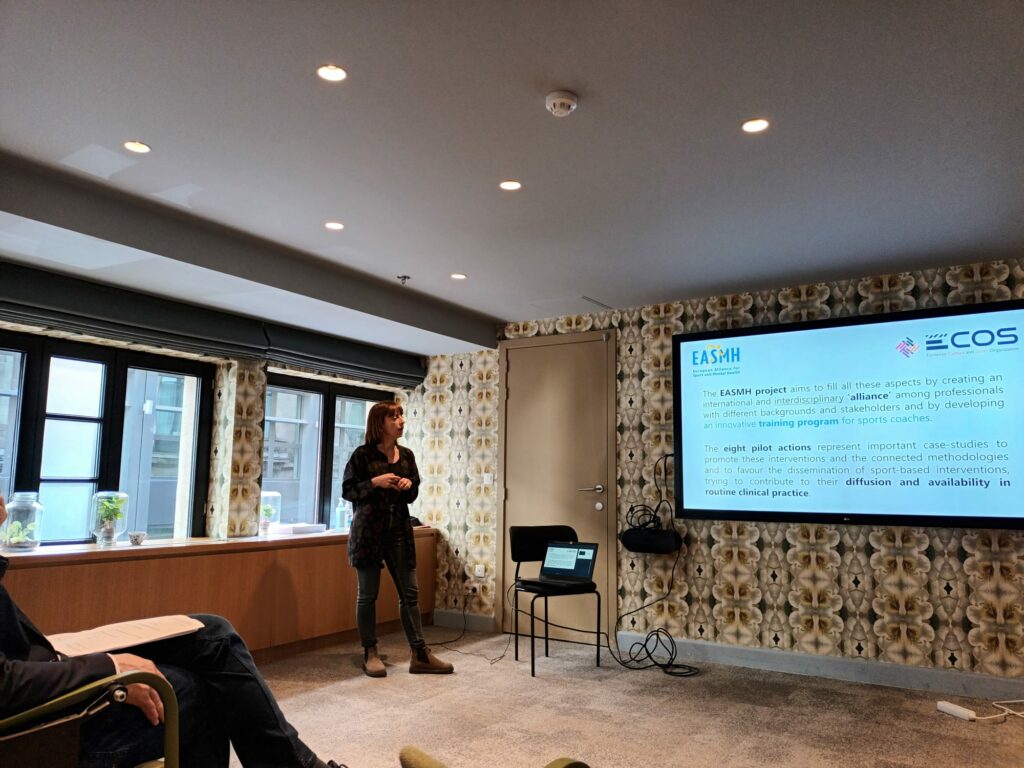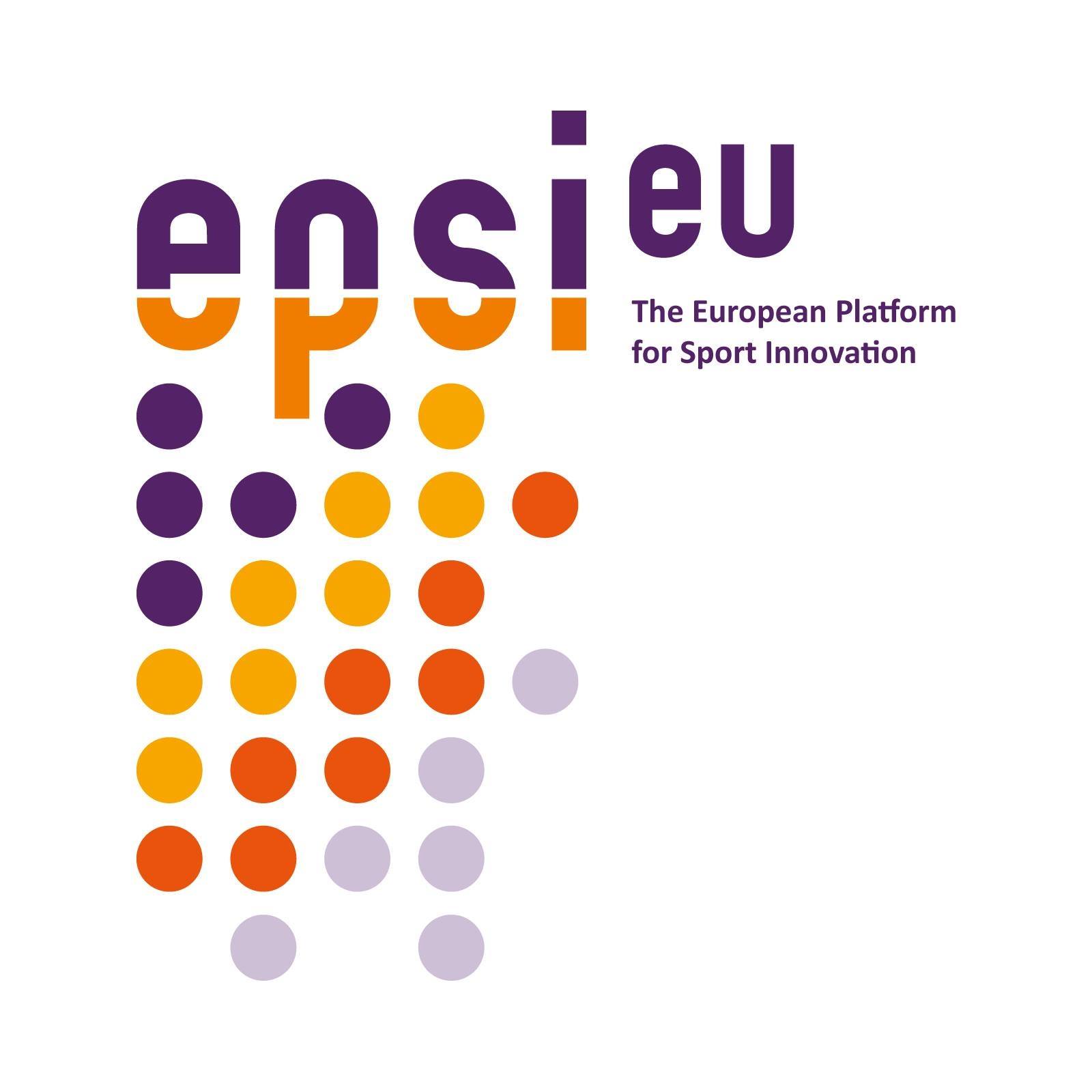The conference took place on the 4th of April in Brussels

Listening, learning, and exchanging ideas on how best to promote mental health thanks to sports. With the participation of the Commission’s Directorate General for Education and Culture (DG EAC), ECOS Europe and the European Platform for Sports Innovation (EPSI) organized an important conference on Tuesday 4th of April about sports and mental-health relationships. Individuals from national and international organizations, federal authorities, EU authorities, sports organizations, and NGOs took part at the event in Brussels to stay updated on the benefit of sports practice on mental well-being.
“European Alliance for Sport and Mental Health: Psychiatric Prevention, Treatment, and Rehabilitation through Sport” – this was the title of the conference which explored new ways sports can be used to support mental health and raise awareness of the serious issues impacting our communities today. The conference was organized in the framework of the Erasmus+ EASMH project, which aims at creating the first European network of both mental health professionals and sports professionals to develop new sport-based integrated recovery models.
From inspiring speakers to networking possibilities, the event was an opportunity to discover new perspectives on what is being done at the European level for people with different mental health diseases. After the welcome of the EPSI’s Executive Director Alberto Bichi, Ms. Florencia Van Houdt – Head of EC Sport’s Unit – lead the introduction talking about physical activity practice is difficult for people that face social or mental disorders. «As a representative of the European Commission Sport Unit, we look for ways to make sports more accessible for everyone, but it is important to raise the awareness of policymakers and public authorities in order to find new funding opportunities, as well as to listen to stakeholders and take decisions with their engagement» stated Ms Van Haudt.

The following session was held by the Researcher Marta Borgi from ECOS Europe – European Culture and Sport Organization, also part of the Scientific Committee of the EASMH Project. Dr Borgi presented the E+ project goals and outcomes, with a spotlight on one of its specific branches called “Crazy for Rugby”, an activity carried out in Italy addressed to adolescents and young adults. «Sports like rugby that includes a “social side” – the third half – are good to take action on mental, cognitive and lifestyle problems. Exercise can have physical and mental effects, but we still need to fight barriers such as stigma and social exclusion».

The inputs from the experts stimulated a general discussion around mental health and sports topic among participants, which was the occasion to talk about sustainable ways to carry on good practices learned from the implementation of the EASMH Project. The event was concluded with the invitation from the EPSI team to fill the expression of interest for participating organisations to be part of the network. To find out more, visit the site and complete the Form.
